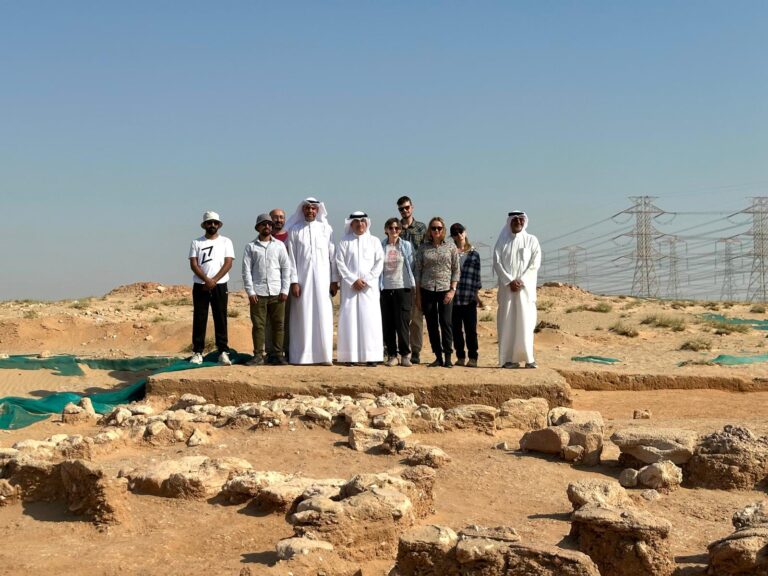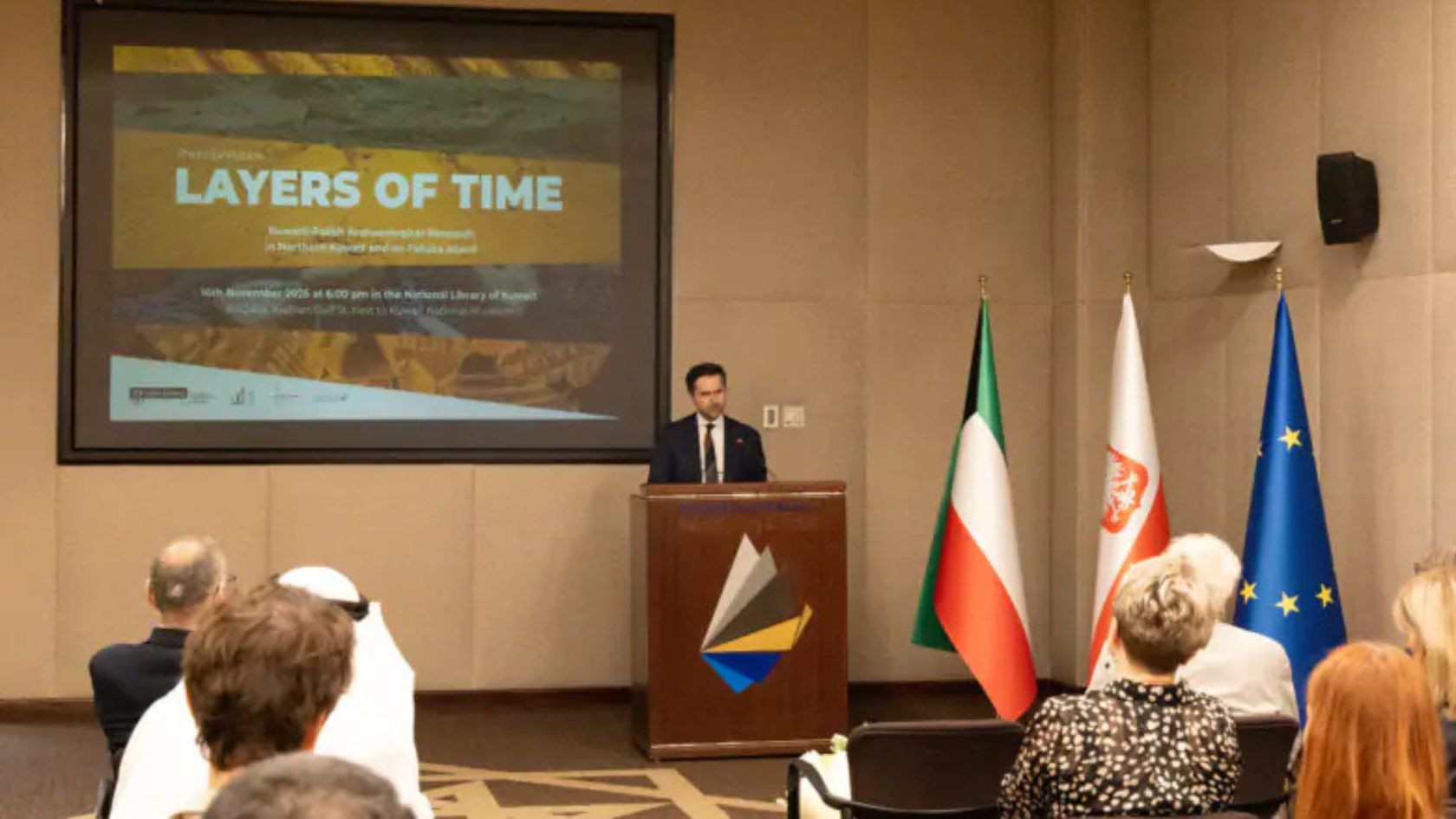Kuwaiti and Polish archaeologists have announced the discovery of more than 20 kilns dating back around 7,700 years, alongside a collection of artefacts at the Bahra 1 site in the Subiya area of northern Kuwait near the current border with Iraq.
The area now known as Kuwait and Iraq was home to the Ubaid culture, a prehistoric Mesopotamian civilisation that extended from southern Iraq into parts of eastern Arabia. Not much is known about the ancient civilisations in the Kuwait research area, and with the joint research project with Poland, the programme is discovering new and interesting finds.
Finds include a half‑model of a winged owl, remains of local barley dating back 7,500 years, pottery vessels broken during firing, a small clay human head, miniature figurines, a model ship and pottery used for food preparation.
Mohammed bin Redha, Acting Assistant Secretary‑General for Antiquities and Museums, told KUNA that “the Bahra 1 site is the oldest and largest known settlement in the Arabian Peninsula from the Ubaid culture period, dating back to around 5700 BC. The discoveries reflect the life of the local community thousands of years ago.”
He explained that the latest Polish excavation season focused on field and laboratory analyses, including ground‑penetrating radar surveys that revealed buried cultural remains likely to guide future digs.

Hassan Ashkanani, Assistant Professor of Archaeology at Kuwait University, said the new discoveries mark a significant addition to understanding the development of the community in Al‑Sabiyah, building on earlier seasons that uncovered jewellery and shell ornament workshops.
Agnieszka Bienkowska, Deputy Director of the Polish excavation team, noted that the findings shed light on daily practices, food preparation methods, the production of pottery from clay mixed with wild plants, and the use of bitumen as fuel.
Professor Anna Smogorzewska highlighted the pottery workshop as one of the most important discoveries at the site in recent years.
Bahra 1 has been a focal point of archaeological research since 2009, through collaboration between Kuwait’s National Council for Culture, Arts and Letters and the Polish Centre for Mediterranean Archaeology at the University of Warsaw. The current mission is supervised by Professor Piotr Bielinski, with Bienkowska serving as deputy director.

As part of the showcasing of the discovered items on November 16, the Embassy of Poland in Kuwait, in collaboration with the Polish Centre of Mediterranean Archaeology at the University of Warsaw (PCMA UW), organised a special exhibition highlighting decades of Polish archaeological research in Kuwait.
Earlier in April, bne IntelliNews previously reported neighbouring Iraq had announced it secured three rare ancient artefacts from New York as part of a deal with the US.
The Iraqi embassy in Washington noted that the items date back to the Sumerian and Babylonian civilisations and described the move as “a new achievement that reflects the tireless diplomatic efforts to safeguard Iraq’s cultural legacy.”
The recovery was coordinated with the Antiquities Trafficking Unit in the Office of the New York District Attorney. The embassy stressed that this step “demonstrates Iraq's firm commitment to retrieving its looted antiquities and returning them to their homeland.”
That retrieval is the latest in a string of returns reported by the country, with the items recently turning up in February.
"It was a significant challenge to recover these Iraqi artefacts, including the Sun God statue and textile panels dating back centuries," said Hussein. "These archaeological pieces are not mere remains but our cherished heritage."
Since 2008, the United States has returned more than 1,200 pieces to Iraq, whose cultural properties and museums were looted after 2003.
In May 2023, President Abdul Latif Jamal Rashid announced the recovery of 6,000 artefacts on loan to the United Kingdom since 1923 for research purposes.
News

Iran's Kharrazi urges Trump to pursue 'real negotiations' based on equality
Iran's top foreign policy adviser has called on US President Donald Trump to pursue genuine negotiations based on mutual respect, rejecting talks conducted under coercion following the cessation of dialogue after US-Israel military action.
.jpg)
Mexico's Gen Z protest draws older crowd as violence mars rally
Public demonstrations in Mexico have renewed focus on security concerns, government accountability and the growing influence of digital platforms in political mobilisation.
_Cropped_1763377129.jpg)
Chile election headed to runoff between Jara and Kast following tight first-round race
Chile's presidential election is headed to a runoff between Communist Party leader Jeannette Jara and hard-right candidate José Antonio Kast, after neither secured the required 50% threshold in November 16’s first round of voting.

Russia hits Kyiv with the largest missile attack of the war
Russia hit Kyiv with the most intense drone and missile bombardment since the war began on November 14, killing six people and injuring a dozen more, as the Kremlin ramps up its campaign to force Ukrainians to suffer a dark and freezing winter.




